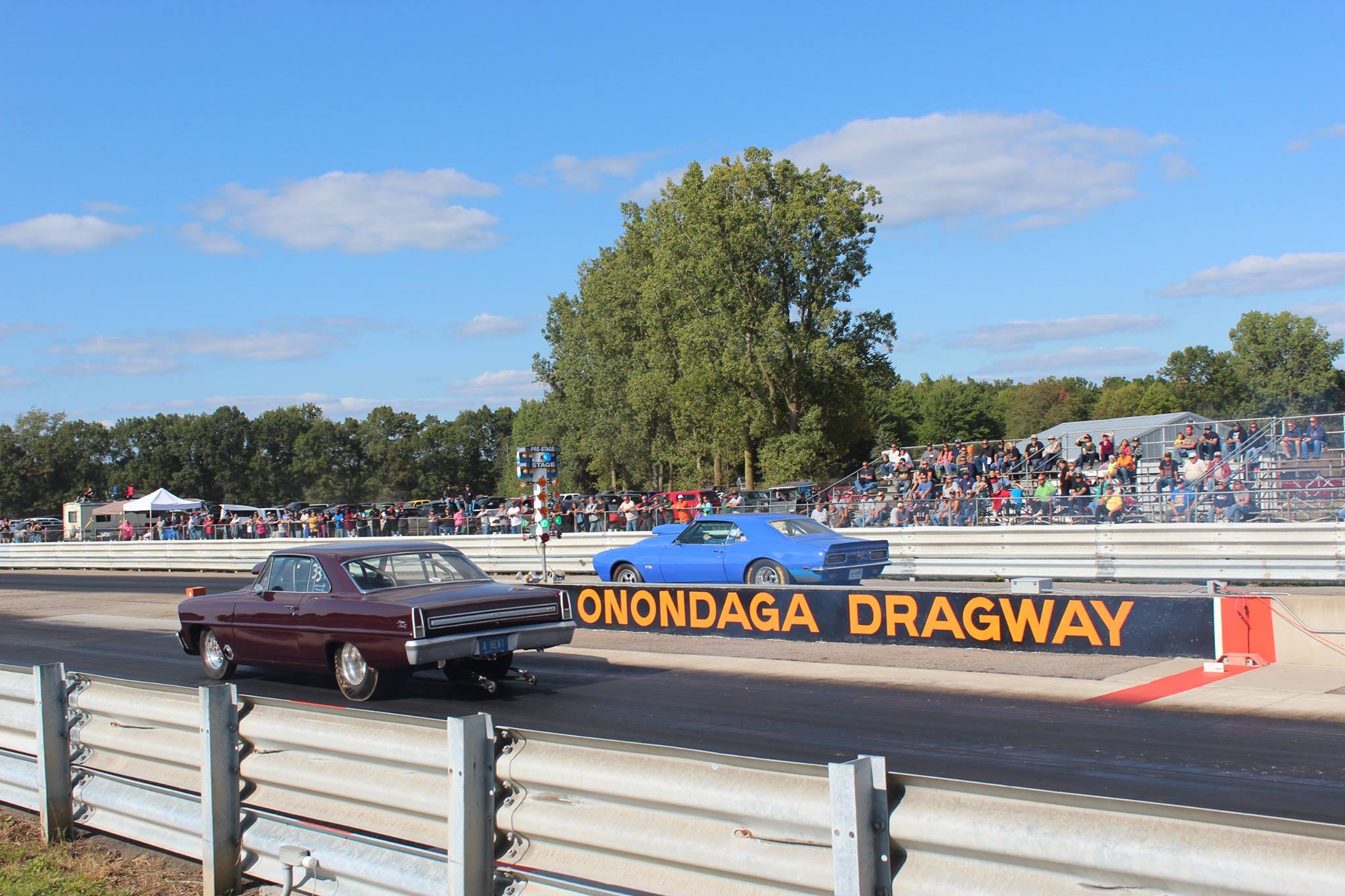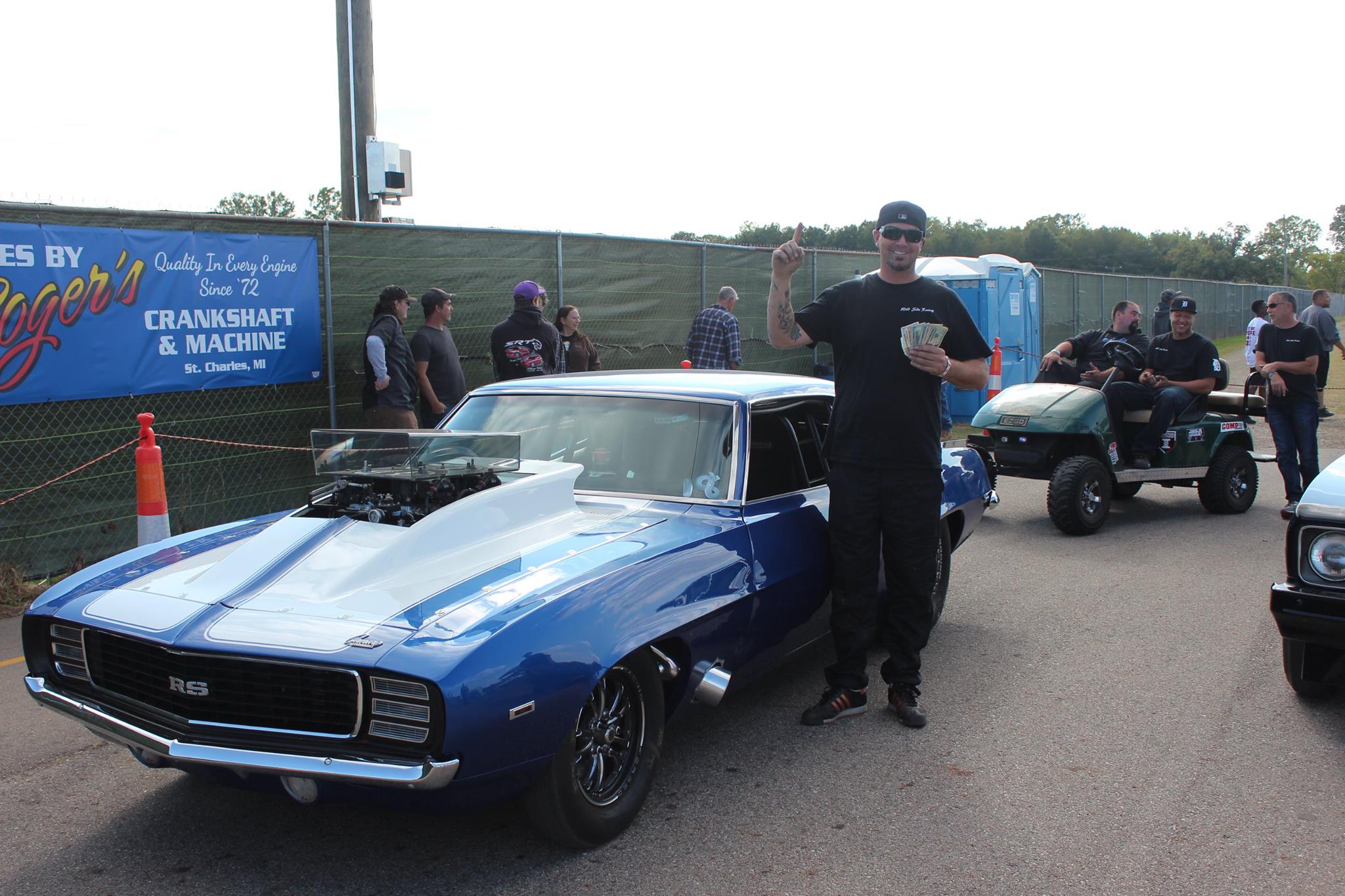Media | Articles
Neighbor’s “nuisance” lawsuit threatens future of mid-Michigan’s Onondaga Dragway
Drag racers face a conundrum. Street racing is illegal and unsafe, but the number of sanctioned drag strips keeps shrinking as real estate developers buy them out and lawsuits shut them down. And we’re about to lose another one.
Mid-Michigan’s Onondaga Dragway has hosted races off and on since the 1960s, but a lawsuit could close the storied track by the end of the week. The track must raise $100,000 to defend itself against a lawsuit filed by neighbors who claim it’s a nuisance and want it shuttered.
Supporters launched a GoFundMe campaign on Sunday and raised $30,000 within 24 hours. Impressive, but the track has incurred $339,000 in legal bills since the suit was filed in 2013. More than 400 people have contributed so far. “This drag strip is a lighthouse for our community and we can’t have it shut down,” Marcie Seavolt, who started the fundraising campaign, told local TV station WLNS.
The track opened in 1961 and drew legendary racers like Shirley Muldowney and Don Garlits through the 1970s before shutting down in 1978 when the economy went south. Folks tried to get it going again in 1985, but the track never saw anything faster than the tractors track owner Ray Comer used to tend the surrounding field.
Marketplace
Buy and sell classics with confidence

That changed about 10 years ago when local concrete contractor and drag racer Dan Pranshka needed a place to test his Chevelle drag car and asked Comer about making a few passes on the track. Comer agreed, Pranshka started burning rubber, and word got around. Before long, Onondaga saw action every weekend.
The track drew enough interest that the city granted Pranshka and Comer temporary permission to open the track to the public. The two men started making improvements, including a new concrete launch pad. Not everyone loved the idea. The prospect of regular races led a few neighbors to take legal action, and a court issued an injunction that closed the track for two years.
Pranshka and Comer reopened the track in 2013 after receiving a permit from the city. Local drag racers and fans rejoiced. The track, which Comer still owns and Pranshka operated through a limited liability corporation until his death, enjoys widespread support among fans and the small army of volunteers who keep it running.
“This is a staple in our community,” says Barbara Fogg, who lives down the street from the track and has watched her daughter and nieces sing the national anthem before races.



The permits allow racing only during daylight hours, and Comer limits the action to Fridays and Saturdays because most folks attend church on Sunday. But some people think even that’s too much.
About a year after the track opened, Gary Caltrider, who owns the mobile home park next door, and Mark Cooper, who lives about a mile away, filed suit. They claim the track is a too loud and want it shut down. “People don’t move into a mobile home park so they can get close to a drag strip,” he told WILX. “They might move out, but they’re not going to move in.”
Track supporters don’t understand what all the fuss is about. Many of them have been going for years, and consider the idea that anyone might consider the track a nuisance silly. “It’s just a good family place to go,” said local business owner Corby Howk, who’s father raced at Onondaga Dragway in the 1960s. “It’s a nice place to go on Friday or Saturday afternoon. It’s fun. There’s no drama there, you know? And the money it’s bringing into town…”
The case has wended through the courts in fits and starts. The trial court denied Caltrider’s claim, ruling that he had no standing because he did not live in the neighboring mobile home park. Although that court upheld Cooper’s nuisance claim, it declined to issue a permanent injunction against the track, ruling that some of Cooper’s actions violated the “unclean hands doctrine,” which says that a party to a lawsuit can’t use extralegal means, for example, intimidating witnesses, to interfere with the case.

No one liked that outcome, so the appeals flew and the track closed in 2014. Racing resumed in 2017, and the track saw a full season of races last year. But the most recent court ruling tossing the case back to the trial court casts the 2019 season in doubt. Caltrider and Cooper’s original suit alleging the track is a nuisance is back in play. The group operating the track has to mount a defense or there will be a permanent injunction against racing there. There are documents to be filed and court deadlines to be met, and if the track doesn’t pay its lawyer at least some of what is owed before those deadlines, the track will close permanently.
Seavolt and other supporters are realize they must raise a lot of money in a short period of time. Should their appeals prevail and the track is reopened, any funds in excess of the legal fees will be used to operate and improve the track.
This matter has roiled the Onondaga community for years, with allegations of official misconduct, recall elections, and the resignation of a township supervisor. While small towns may project the image of wholesomeness, it’s also been said that nothing is a vicious as small town politics. Let’s hope the track can find a way to survive to everyone’s satisfaction.










